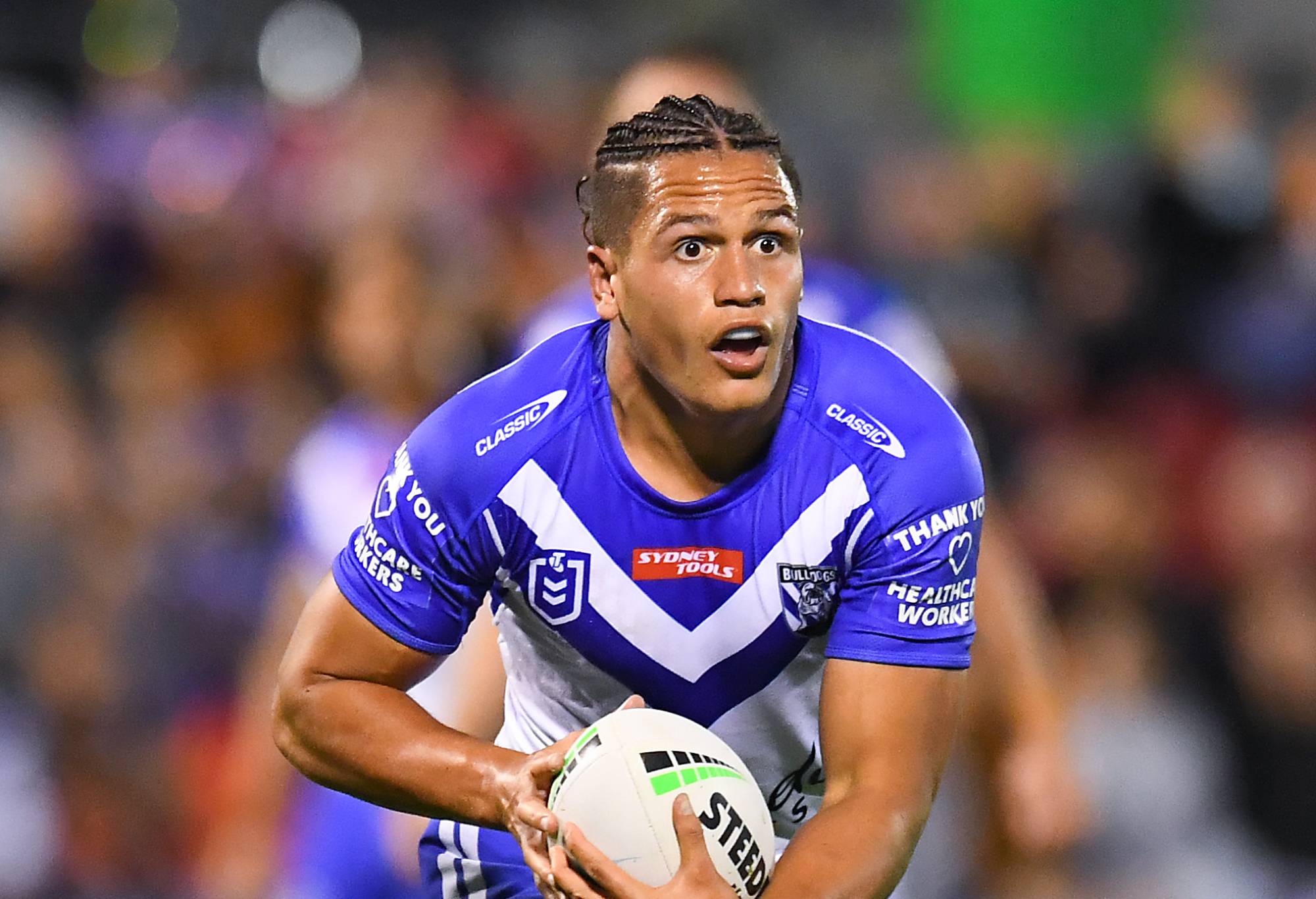The Jackson Topine case is just like the Shane Heal legal saga that threatens huge modern-day coaching ramifications

The legal proceedings involving the Canterbury Bankstown Bulldogs and Jackson Topine, and those involving the Sydney Flames and Shane Heal, may signify a watershed moment in Australian sport.
Perhaps even for global sport.
Topine’s $4 million lawsuit against the Bulldogs stems from an incident last season. It has been reported that Topine arrived late for training, and received a punishment relatively common in rugby league circles, as he was made to wrestle all 30 to 35 of his teammates.
As a result of his treatment, Topine’s lawyer claims he “suffered ongoing incapacity to play the game” due to “psychiatric injury” and “physical and mental impairment”.
Topine has not played in the NRL since, and his lawsuit is therefore pursuing a loss of income.
However, central to the Bulldogs’ defence will be the fact his agent has tried to win him a contract with every other NRL club.
Meanwhile, Australian basketball star Shane Heal was suspended from his position as head coach of the WNBL’s Sydney Flames due to complaints from players.
Heal sued the Flames for wrongful dismissal, but subsequently lost most of his court case.
During the proceedings, it was revealed that Heal was accused of asking a player “what the f–k” she was doing, twice at training, and once in a game.
He was also accused of singling out players in video sessions, telling them they had “stuffed up” in front of the entire team.
Where you sit on these two incidents may depend upon your own experience in playing sports, at any level.
Jackson Topine. (Photo by Albert Perez/Getty Images)
Personally, I played representative basketball as a youngster and had a number of coaches who could best be described as ‘tough’, to put it mildly.
Thankfully, I never had to wrestle my teammates, because my frame was a little…light.
However, getting verbally ‘chewed out’ by my coach for missing a defensive assignment or taking deep, pull-up three-pointers off the dribble (I was ahead of my time!) was a regular occurrence.
As for the language, let’s just say it was extremely ‘colourful’.
As such, I almost laughed at Heal’s supposed indiscretions.
Yet while I don’t feel I’d personally have an issue with Heal’s behaviour, that doesn’t mean it shouldn’t be scrutinised.
We live in an era in which we’re trying to better understand, and destigmatise, issues around mental health, and workplace environments play a large role in this.
When it comes to the Topine and Heal legal cases, there will be – and already has been – plenty of people who proclaim sentiments like “that’s soft”, “professional sport isn’t for everyone” and “the players should harden up”.
Such comments were certainly easy to find when Justin Langer stood down from his role as head coach of the Australian cricket team, after not receiving the length of contract extension he was after.
After concerns were raised by the playing group that Langer’s intensity had created an environment that the players were no longer enjoying, the coach was offered a meagre six-month extension, which amounted to all but a sacking.
The drama set off something of a civil war within Australian cricket, with many ex-players siding with Langer and questioning why the current players had the power to remove a coach; especially when Langer had achieved so much “success”.
It’s somewhat debatable how much success Langer actually achieved, but that’s a discussion for another article.
What’s not for up debate is that it was another example of the modern ramifications of players airing complaints with their coach.
Shane Heal, Head Coach of the Flames looks on during a WNBL match. (Photo by Mark Evans/Getty Images)
It would be dangerous to assume the Topine, Heal and Langer situations are all exactly the same. They’re not.
There are differing circumstances and nuances to each one. Yet they do all highlight that modern sport is a different ball game.
Off the back of the Heal ruling, if the Bulldogs are found liable for a payment of $4 million to Topine, it could signify a massive shift in Australian sport.
If people can lose their jobs, and clubs can face massive payouts, due to the behaviour of coaches, it will drastically change the way sporting teams in Australia – and potentially the world – will be coached.
Being ‘tough’ on your players would come with the stark reality that players can voice their disapproval if they believe things have gone too far, with incredibly costly consequences to follow.
Would this, as many experts would have us believe, make players softer? Less resilient? Too influential? Not prepared for professional sport?
That’s problematic to definitively answer, and not just because there’s no metrics to validate the argument.
There’s also the reality that there are plenty of ‘player friendly’ coaches in numerous sports who seem to be able to have their athletes ready to perform on the biggest stage, without said players having a concern about how they’re treated.
Sports opinion delivered daily
What side of the fence do I sit on? The truth is, it doesn’t matter what I think. If a court of law sets a precedent and a benchmark moving forward, that’s all that matters.
Coaches of a certain ilk would be in higher demand, as they would pose less of a ‘risk’ for player fallout dramas.
After all, are clubs really going to hire a hard-nosed, disciplinarian-type coach if they come with the potential of players being able to sue the club?
That may well become a significant gamble many club bosses aren’t willing to take.
As such, all eyes will be on the Topine case, because the result could be seismic for Australian sport.
